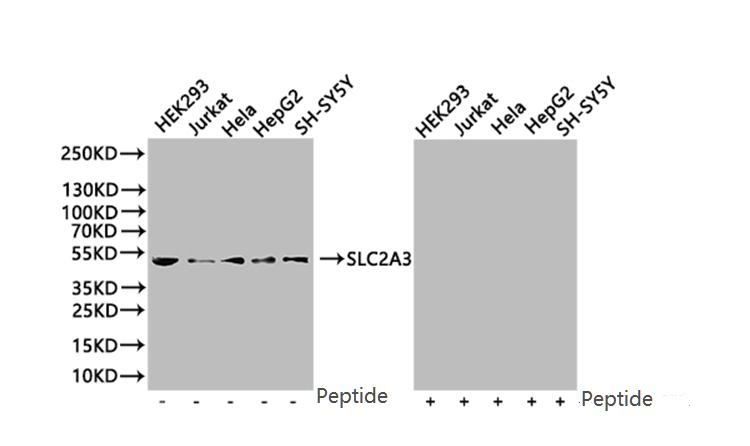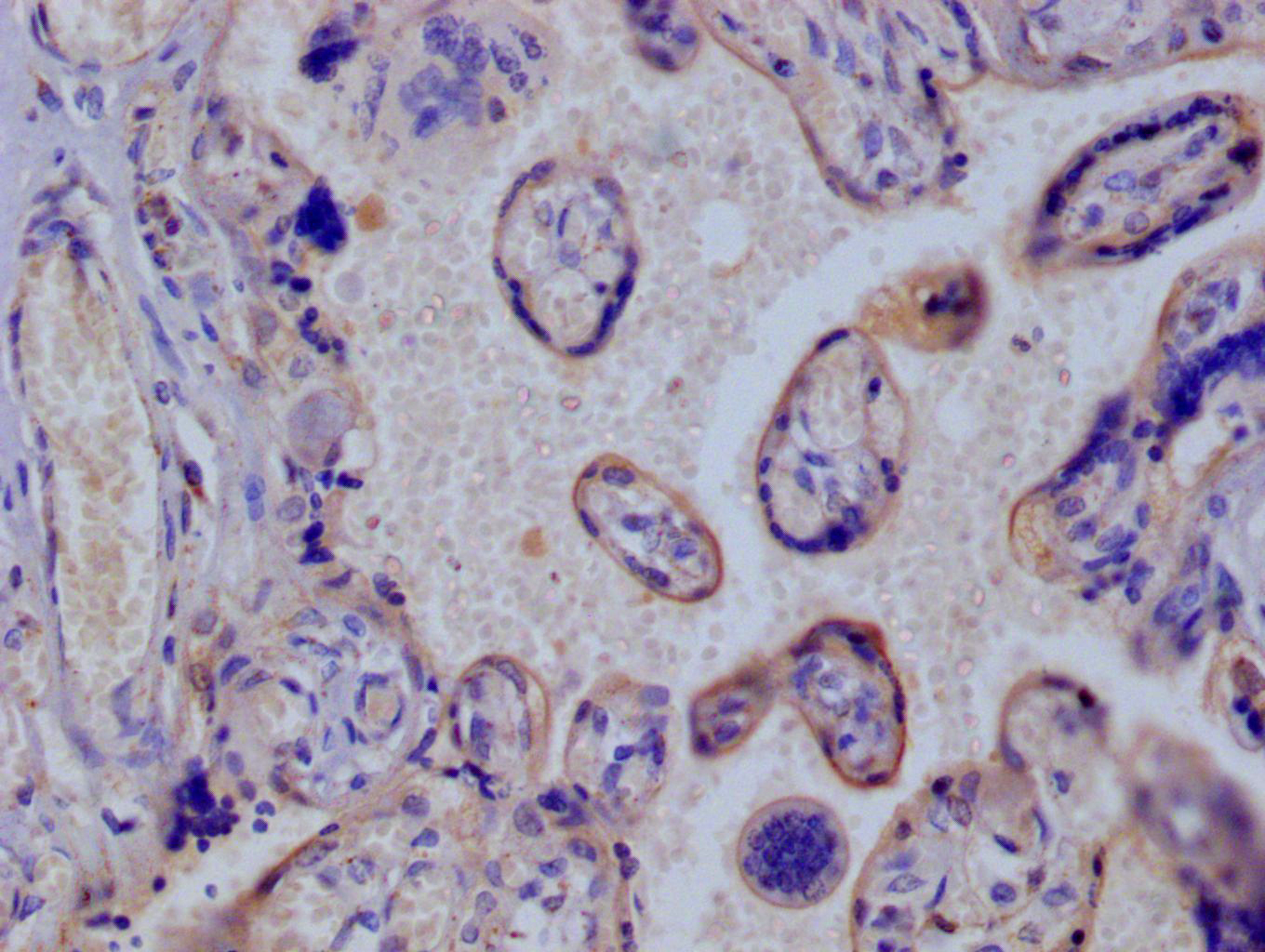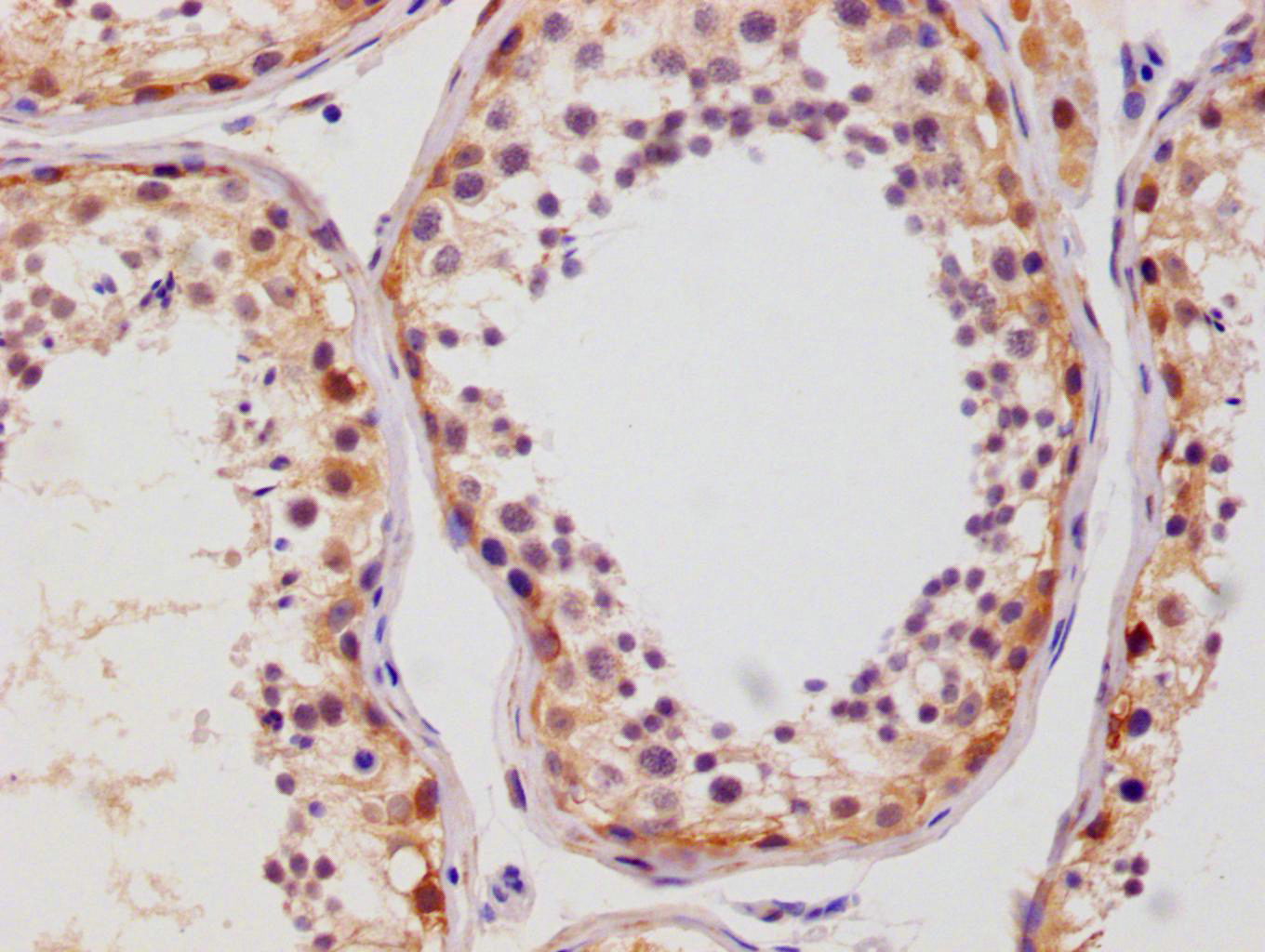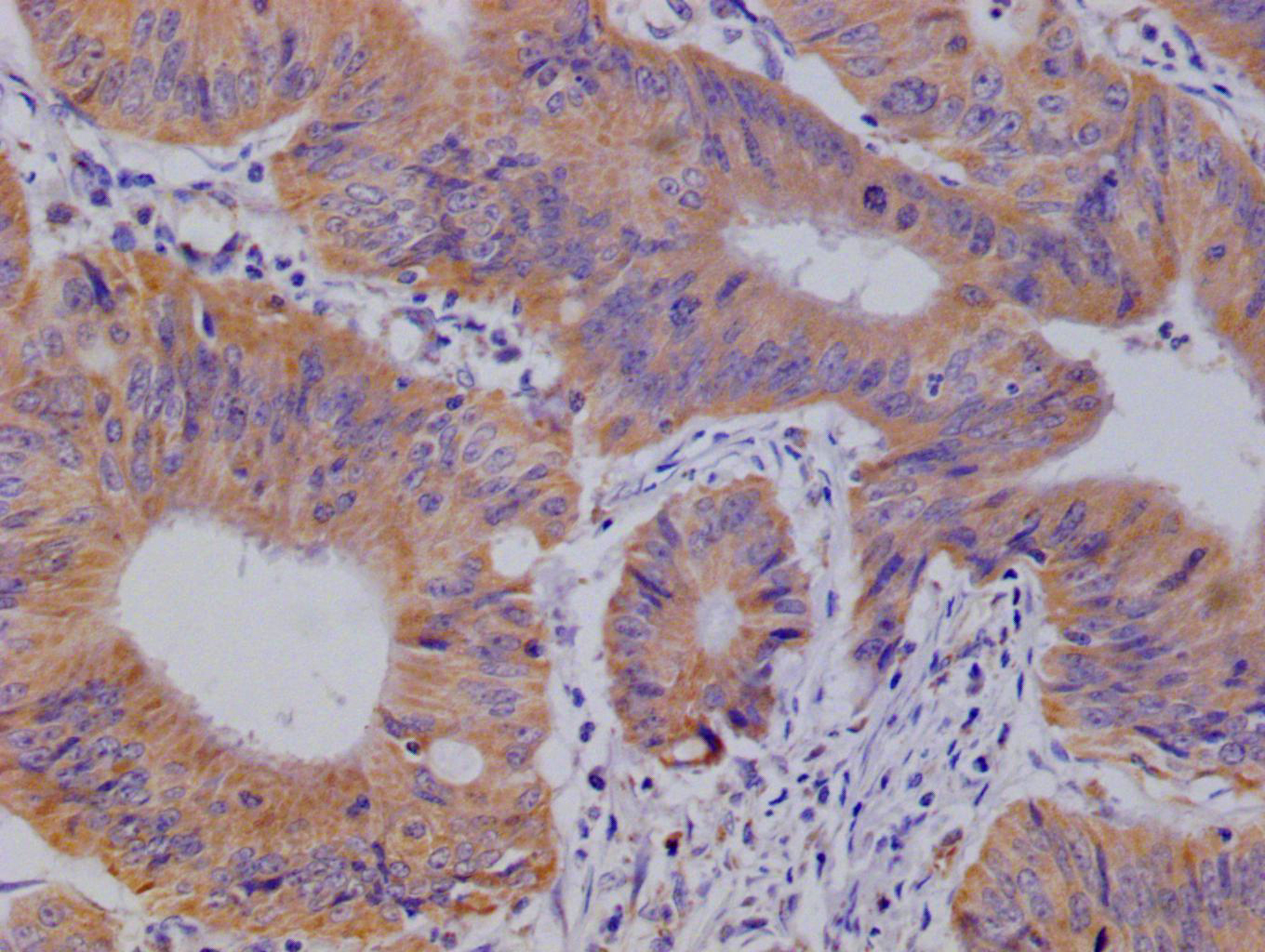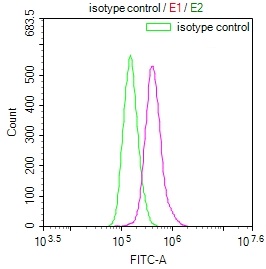CUSABIO meticulously generated the SLC2A3 recombinant monoclonal antibody through a systematic approach. Initially, B cells were isolated from the spleen of an animal immunized with the a synthesized peptide derived from human SLC2A3. Subsequently, RNA was extracted from the B cells and reverse-transcribed into cDNA. The gene encoding the SLC2A3 antibody was then amplified using a degenerate primer and inserted into a vector. Through transfection, the recombinant vector was introduced into host cells, enabling efficient expression of the SLC2A3 recombinant monoclonal antibodies. These antibodies were subsequently harvested from the cell culture supernatant and subjected to purification using affinity chromatography. Rigorous validation, including ELISA, WB, IHC, and FC testings, was performed to confirm the specific reactivity of the SLC2A3 recombinant monoclonal antibody with human SLC2A3 protein, ensuring its reliability and suitability for various applications.

